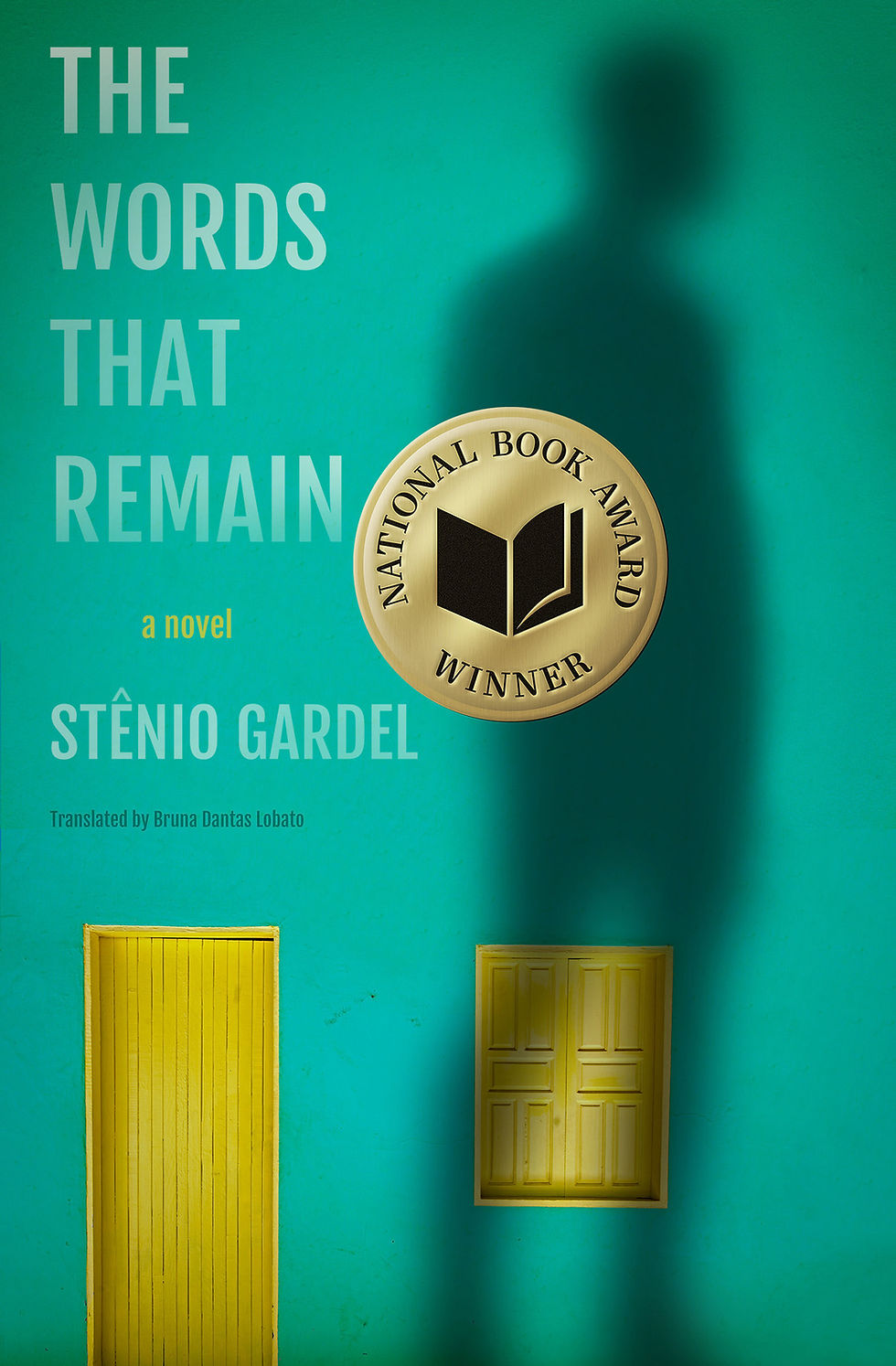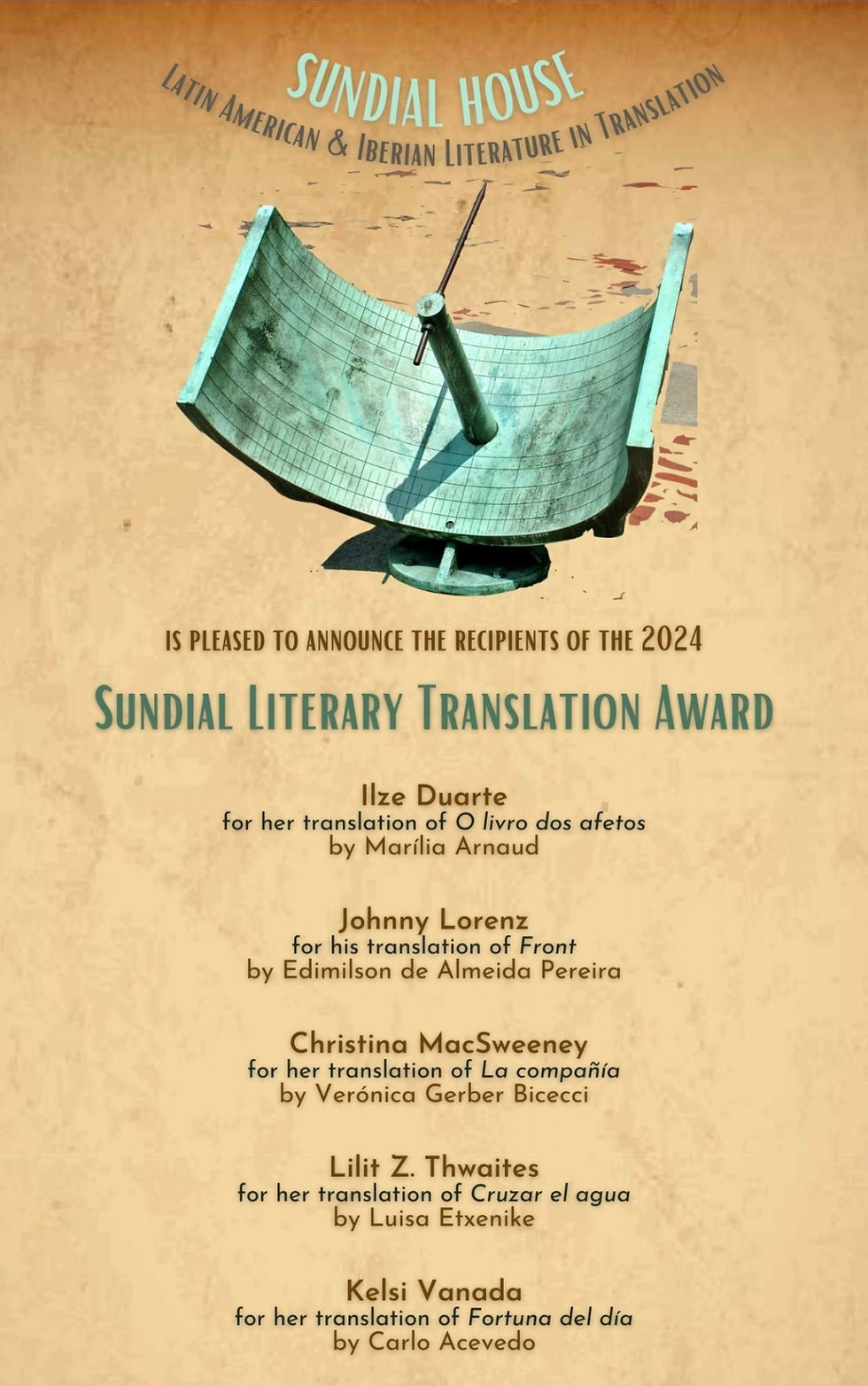Brazilian Literature in English Translation: 2023 Highlights
- ilzeduarte

- Dec 11, 2023
- 5 min read
This has been an eventful year for Brazilian literature in English translation. A classic of Brazilian literature received a new English translation, and contemporary works reached an English-language readership for the first time and garnered enthusiastic critical acclaim.
Macunaíma: O Herói Sem Nenhum Caráter by Brazilian modernist Mário de Andrade is a dense, multi-layered story about the origins of Brazil as a country. From what I have read, it seems the thick volume was written in quite a short time, but it is evidently the result of many years of research on the history and narrative and linguistic traditions of various regions of Brazil. Andrade combines myth and fact, reality and magical realism, urban and rural ways of being and speaking. The narrative draws heavily on folklore and incorporates stories and vocabulary from indigenous languages. An impressive literary achievement, Macunaíma is also a reflection on Brazil as a society, where it had been, and where it was going in the early twentieth century.
In an interview with the New York Times, Katrina Dodson said she spent years studying Macunaíma and traveling around Brazil to understand the work and to prepare for her translation of it. In April of this year, Tobias Caroll of World Without Borders said of Macunaíma and Dodson’s translation: “What happens when modernism and mythology collide—and then merge into something heretofore unseen? In Katrina Dodson’s translation, Mário de Andrade’s Macunaíma is bizarre and tactile, with images like this: ‘its great big smokestack spit up a whole cloud of mosquitoes, of midges gnats horseflies spiderwasps hornets rove-beetles botflies, all them bloodsuckers chasing away the drivers.’ Dodson’s afterword provides even more literary and historical context for this dizzying novel.”

Torto Arado, Itamar Vieira Jr.’s stunning debut, was published in English translation in June. Titled Crooked Plow in Johnny Lorenz’s beautiful translation, the novel tells the story of two sisters growing in a community of Black sharecroppers in the countryside of the state of Bahia, in conditions that amount to modern-day slavery. Even though there are no mentions of a time period, a few clues in the narrative suggest the story takes place in the second half of the twentieth century. After a freak accident, one of the sisters becomes unable to speak and the other starts speaking for both, although between themselves they communicate effectively through a system they develop in their closeness and devotion to one another.
As the two sisters grow, the narrative expands beyond the family’s story to explore the sharecroppers’ fight for their rights, especially the assurance they can live on the land where they grew up, the land they still work for no pay. As a Kirkus review puts it, “[a]mong the laudable feats Vieira Junior accomplishes in this novel is the way it gradually moves from a highly specific story to one with implications for a region's entire working class. In a book that often concerns itself with voices both singular and collective, it's a stirring progression.” Crooked Plow is a moving, powerful story of family ties, spirituality, societal strife, and belonging.

A Palavra Que Resta by Stênio Gardel, The Words that Remain in Bruna Dantas Lobato’s translation, is the winner of this year’s National Book Award in the Translated Literature category. Considered by many writers and translators the Oscars of the literary world, the National Book Award is a great honor and tribute to the talents of Gardel and Dantas Lobato. The Words That Remain is the story of a gay man who lives in a rural area and does not have access to an education, thus remaining illiterate as an adult. He is unable to be with the young man he loves or to read the letters he receives from him over the years. Much later in life, he learns how to read and finally gets access to what his beloved had been writing to him.
In their citation, the National Book Award judges wrote: “Stênio Gardel’s The Words That Remain is deceptively simple, heartbreakingly honest, and a compelling examination of intimacy in relationships that invites the reader to experience queer desire and survival through new perspectives. Bruna Dantas Lobato’s translation brings the text to life, capturing the yearning for social and personal autonomy through fragmented memories. When love and life fail, Gardel’s novel reminds us how language can be a form of resilience, offering us comfort and a path forward.”

Zoë Perry is the first winner of the newly created Cercador Prize in Translation, awarded by a group of five independent booksellers. Perry won the prize for her translation of the novel Of Cattle and Men (De Gados e Homens) by Ana Paula Maia. Maia’s protagonist works at a slaughterhouse and is trying to solve a mystery: the cattle have been dying well ahead of the time they are scheduled to be slaughtered. This short, piercing novel explores the brutality and ease of killing and underscores the irony of the price the slaughterhouse workers pay to produce meat they themselves cannot afford to buy.
The prize judges’ citation reads, “Of Cattle and Men lays bare the brutal labor of the slaughterhouse trade. Zoë Perry’s translation from the Portuguese is steadfast in its interpretation of agricultural life in rural Brazil and remarkable in its ability to render the subtle surrealism and overwhelming bloodshed of Ana Paula Maia’s new breed of western. Maia implicates our senseless treatment of animals as product and the trauma inflicted on workers in the name of industry. Of Cattle and Men doesn’t demand a change in diet, but it does demand the reader’s absolute attention.”

Phenotypes, Daniel Hahn’s translation of Marrom e Amarelo by Paulo Scott, was announced just a few days ago as the winner of the category Livro Brasileiro Publicado no Exterior, or Brazilian Book Published Abroad, of the Jabuti prize, the most prestigious literary award in Brazil. Phenotypes is the story of biracial brothers Federico and Laurenço. Federico is light skinned (amarelo/yellow) and often passes for white, while Laurenço is darker (marrom/brown). Federico returns to his home state to support his family when Laurenço’s daughter is arrested at a demonstration. Federico’s homecoming is fraught with the resurgence of tensions the brothers had experienced in their youth due to racism. The brothers’ struggles, shared in real life by people of color all over Brazil, stand in stark contrast to the pervasive myth that the country is a racial democracy.
A review in The Guardian praises Hahn’s translation and states, “Scott’s characterisation is superb. Federico’s complexities are revealed through his interactions with others, their different views of him, his public image and inner angst. His conflicted protagonist is flawed but hugely sympathetic. The stream-of-consciousness narrative, long sentences, paragraphs that run over pages and lack of speech tags are challenging, but careful reading proves richly rewarding. Phenotypes educates and entertains in equal measure.”

The end of the year has brought wonderful news to me as well: I am honored to be among the recipients of the 2024 Sundial House Literary Translation Award, which includes the forthcoming publication of my translation of O Livro dos Afetos/The Book of Affects by Marilia Arnaud. I am thrilled to help bring to an English-language audience the work of a Brazilian author of such enormous talent. Below is the announcement. You may notice that Johnny Lorenz, the translator of Crooked Plow, is also a recipient of the award.

The Book of Affects is a collection of short stories exploring a wide gamut of human experiences and emotions. Some of the protagonists are men, some are women; some are adults, some are children. The nine stories in the collection delve into the intricacies of love, longing, desire, jealousy, betrayal, loss, and violence. Arnaud’s masterful descriptions of the feelings experienced by this diverse cast of characters are sure to elicit in readers an equally varied set of reactions: tenderness, compassion, awe, bewilderment.
I strongly encourage you to read one or more of these works. Please send me comments and questions about this post or previous posts by using the form on my contact page.







Comments